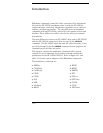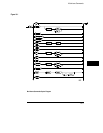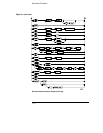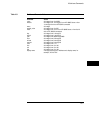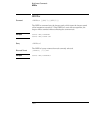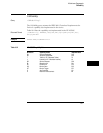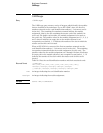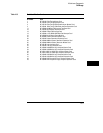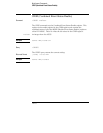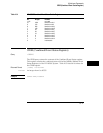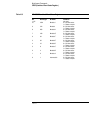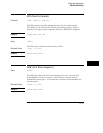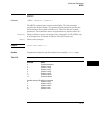
CARDcage
Query :CARDcage?
The CARDcage query returns a series of integers which identify the modules
that are installed in the mainframe. For an HP 16500C alone, the first five
numbers returned are the card identification numbers (–1 means no card is
in the slot). The remaining five numbers returned indicate the module
assignment (that is, the slot containing the master card of the module) for
each card. For single-card modules, the module assignment is the same as
the card’s slot. The possible values for the module assignment are 0, 1, 2, 3, 4,
and 5 where 0 indicates an empty slot or the module software is not
recognized or not loaded. 1...5 indicates the number of the slot in which the
master card for this card is located.
When an HP 16501A is connected, the first ten numbers returned are the
card identification numbers (–1 means no card is in the slot). The remaining
ten numbers returned indicate the module assignment for each card. The
possible values for the module assignment are 0 through 10 where 0 indicates
an empty slot or the module software is not recognized or not loaded. 1...10
indicates the number of the slot in which the master card for this card is
located.
Table 10-3 lists the card identification numbers and their associated cards.
Returned Format
[:CARDcage]
<ID>,<ID>,<ID>,<ID>,<ID>,[<ID>,<ID>,<ID>,<ID>,<ID>,]
<assign>,<assign>,<assign>,<assign>,<assign>
[,<assign>,<assign>,<assign>,<assign>,<assign>]<NL>
<ID> An integer indicating the card identification number.
<assign> An integer indicating the module assignment.
Example OUTPUT XXX;":CARDCAGE?"
Mainframe Commands
CARDcage
10–8





